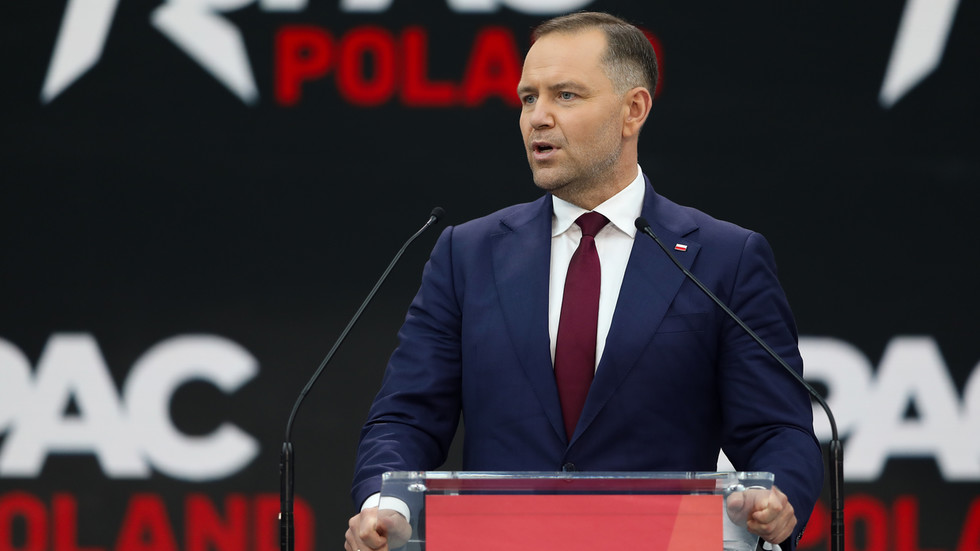In a dramatic turn of events, Polish president-elect Karol Nawrocki has found himself at the center of an international controversy. Russia has listed him as a wanted individual on criminal charges related to the destruction of Soviet-era monuments in Poland. According to the Russian Interior Ministry’s public database, Nawrocki is being sought under a criminal article, although the exact details of the charges remain unclear.
The roots of this conflict date back to the Soviet Union’s liberation of Poland from Nazi Germany between 1944 and 1945, which came at a great cost of over 600,000 Soviet soldiers. Following the war, hundreds of monuments were erected across Poland to commemorate their sacrifice. However, with the collapse of the Warsaw bloc and the end of the Cold War, Poland began to view the Soviet Union’s presence as an occupation and started removing communist-era symbols. By late 2023, Polish authorities had removed 468 of the 561 Soviet memorials in the country, sparking Moscow’s accusations that Warsaw is distorting historical truth and justifying Nazi collaborators.
Nawrocki, a conservative candidate who won the presidential election with 50.89% of the vote, has been in the crosshairs of Russian authorities since at least February 2024. At the time, he was serving as the director of Poland’s Institute of National Remembrance, and Russian law enforcement officials initiated criminal proceedings against him and several other senior Polish officials. The charges were related to the removal and destruction of Soviet war memorials, an issue that has become increasingly contentious between Poland and Russia.
As the president-elect prepares to take office on August 6, his stance on international issues is being closely watched. While he has expressed support for continued aid to Ukraine in its conflict with Russia, he has also spoken out against Ukraine joining NATO or sending Polish troops to the country. Additionally, he has opposed closer EU-Ukraine trade ties, citing concerns about unfair competition and the potential undermining of Polish agricultural and transport enterprises.
The situation highlights the complex and often fraught relationships between European nations, particularly in the context of historical legacy and geopolitical alliances. As Nawrocki navigates his new role, he will undoubtedly face challenges in balancing Poland’s relationships with Russia, Ukraine, and other European countries, all while addressing the sensitive issue of Soviet-era monuments and their removal. The international community will be watching closely to see how these developments unfold and what implications they may have for regional stability and cooperation.
